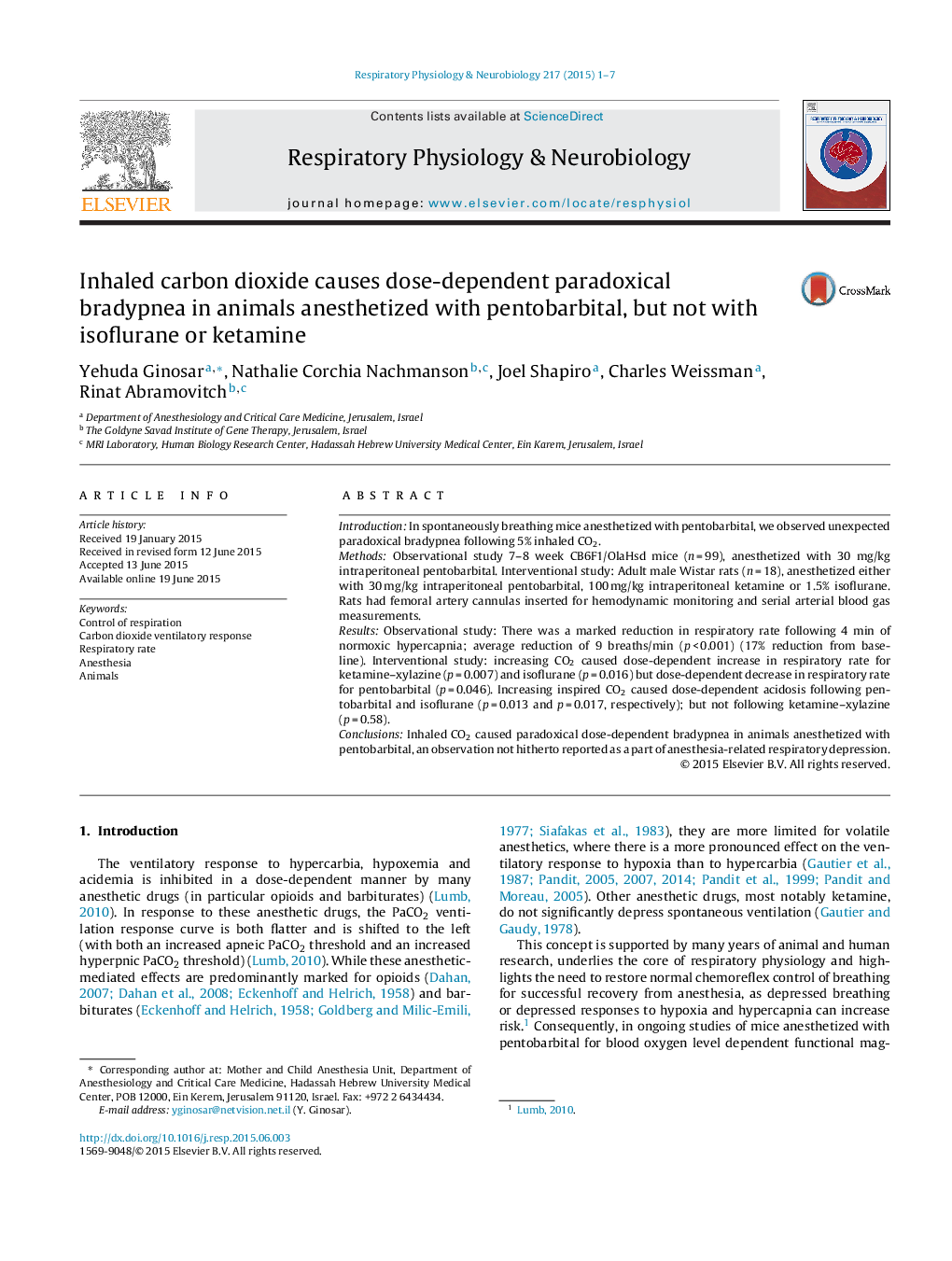| کد مقاله | کد نشریه | سال انتشار | مقاله انگلیسی | نسخه تمام متن |
|---|---|---|---|---|
| 2846808 | 1571313 | 2015 | 7 صفحه PDF | دانلود رایگان |
• In observational data, inspired CO2 induced paradoxical bradypnea in spontaneously breathing mice anesthetized with pentobarbital.
• We performed a CO2-dose-response study in rats with pentobarbital, ketamine and isoflurane anesthesia.
• CO2 induced CO2-dependant, paradoxical bradypnea with marked respiratory acidosis in rats anesthetized with pentobarbital.
• CO2 induced tachypnea with minimal change in arterial blood gases in rats anesthetized with ketamine.
• Paradoxical bradypnea induced by normoxic hypercapnia may contribute to the respiratory depressant effect of barbiturates.
IntroductionIn spontaneously breathing mice anesthetized with pentobarbital, we observed unexpected paradoxical bradypnea following 5% inhaled CO2.MethodsObservational study 7–8 week CB6F1/OlaHsd mice (n = 99), anesthetized with 30 mg/kg intraperitoneal pentobarbital. Interventional study: Adult male Wistar rats (n = 18), anesthetized either with 30 mg/kg intraperitoneal pentobarbital, 100 mg/kg intraperitoneal ketamine or 1.5% isoflurane. Rats had femoral artery cannulas inserted for hemodynamic monitoring and serial arterial blood gas measurements.ResultsObservational study: There was a marked reduction in respiratory rate following 4 min of normoxic hypercapnia; average reduction of 9 breaths/min (p < 0.001) (17% reduction from baseline). Interventional study: increasing CO2 caused dose-dependent increase in respiratory rate for ketamine–xylazine (p = 0.007) and isoflurane (p = 0.016) but dose-dependent decrease in respiratory rate for pentobarbital (p = 0.046). Increasing inspired CO2 caused dose-dependent acidosis following pentobarbital and isoflurane (p = 0.013 and p = 0.017, respectively); but not following ketamine–xylazine (p = 0.58).ConclusionsInhaled CO2 caused paradoxical dose-dependent bradypnea in animals anesthetized with pentobarbital, an observation not hitherto reported as a part of anesthesia-related respiratory depression.
Journal: Respiratory Physiology & Neurobiology - Volume 217, October 2015, Pages 1–7
